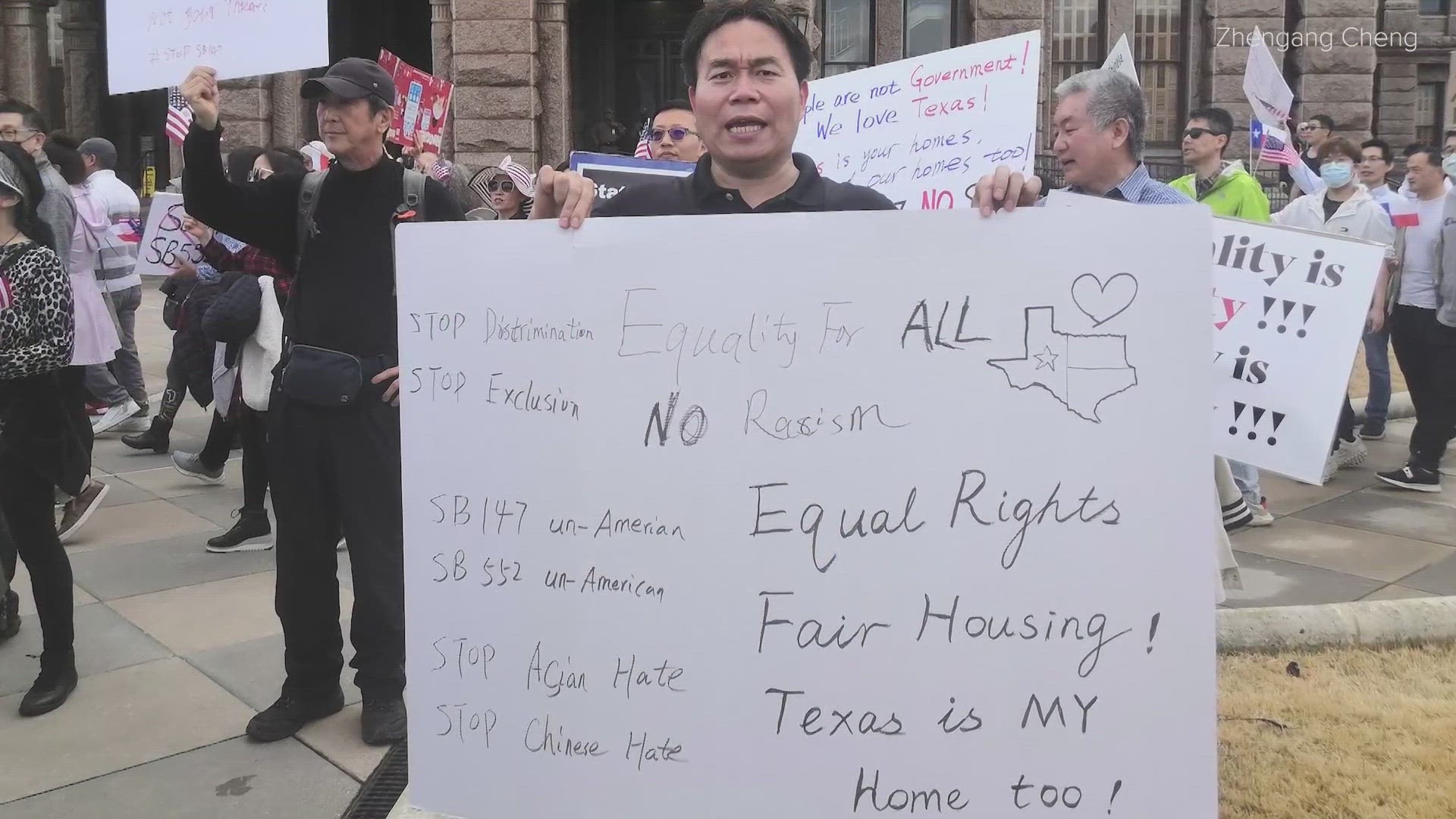AUSTIN, Texas — Zhengang Cheng has lived in North Texas for 17 years. For the first time this year, he found himself compelled to drive to Austin to protest five bills that were introduced during the 88th legislative session.
He calls them discriminatory, including Senate Bill 147. "It's damaging and dangerous," said Cheng.
The original bill was written to ban governments, businesses and citizens of China, Iran, North Korea and Russia from buying real estate in Texas. After more than 100 people testified, including Cheng, the bill was changed to remove the four specified countries.
As an immigrant from China who has made Texas his home, Cheng said, "With a bill like this, you are categorizing this whole group as suspects."
WFAA reached out to state Sen. Lois Kolkhorst, who authored SB 147. Her office said, in part, "due to the heavy schedule in these final days of session, Senator Kolkhorst is not available for request."
In the past, Kolkhorst said her bill was a measured response to a real security threat that other states have also moved to address.
However, Texas state Rep. Gene Wu said the bill targeted innocent people who had nothing to do with the actions of a foreign government.
"It's racist. It's really, really racist," Wu said. He said this is generational racism.
But this time, Wu was impressed by the uproar of the Asian community in response to these bills. "The response from the community was historic. It was record-breaking. We had protest. We had marches that were the first by the Asian community in the state's history," said Wu.
With little time left in the 88th legislative session, the bills are effectively dead. Wu said people like Cheng made a difference. "Just being angry at home does nothing. You have to go out and talk to your elected officials. You have to go out and protest and be loud and be recognized and have it understood that you oppose something."
Cheng considers this a win, but he knows it isn't the last of discriminatory bills. He plans to be back in Austin again.

